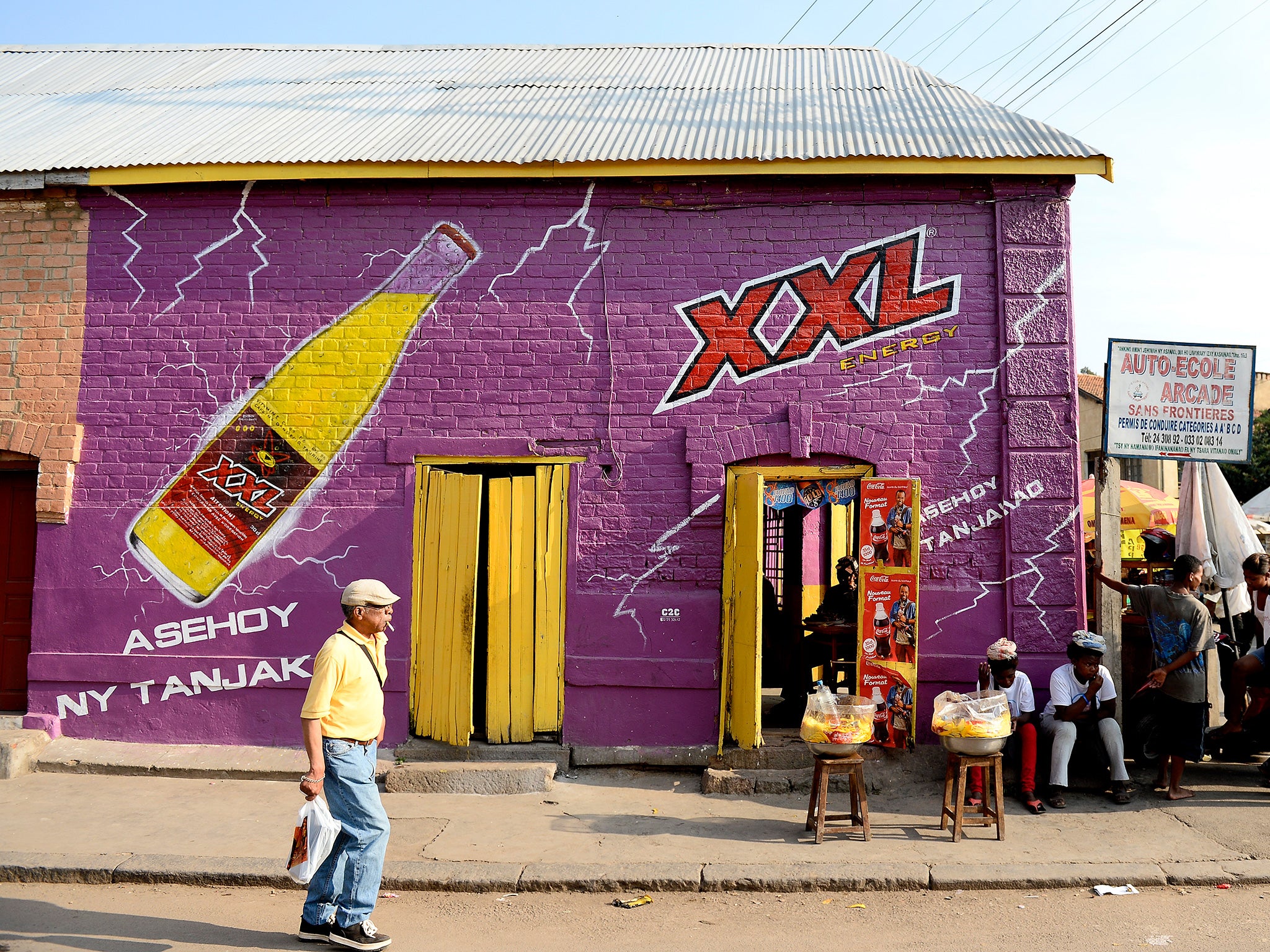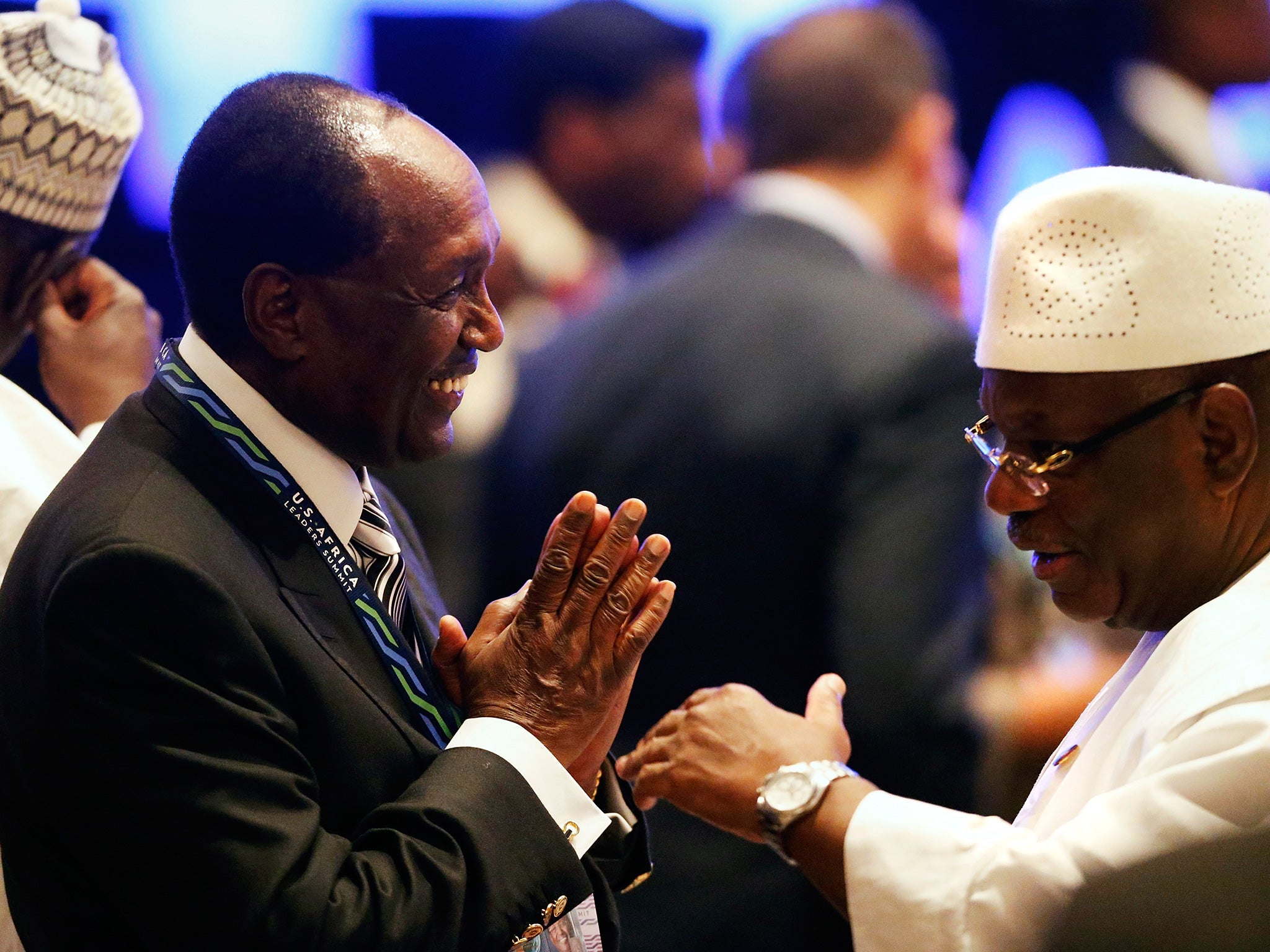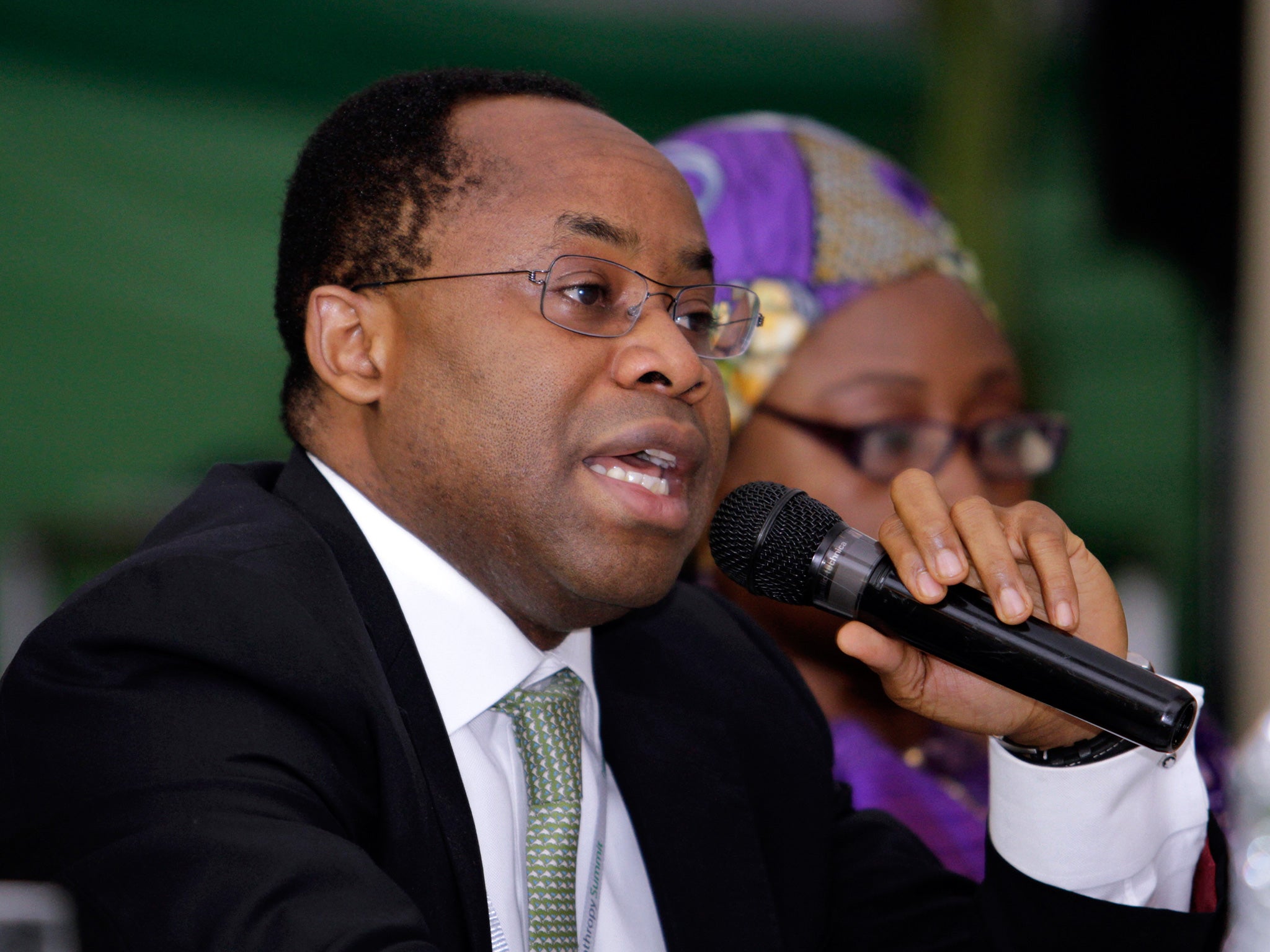The leaders turning Africa into the bright continent
For all the reports of war and famine, Africa is booming. Jim Armitage speaks to some of its CEOs at their annual get-together in Geneva

It’s easy to fall into the age-old narrative that Africa is a land hidebound by corruption. But, at the annual Africa CEO Forum in Geneva this week, corporate leaders were pushing a very different theme.
In fact, the C-word was one that few delegates wanted to talk about, preferring instead to discuss the same kinds of subjects that one finds repeated and rehashed in any Western corporate forum: successful corporate acquisitions, the rise of digital technology, corporate governance in family-owned businesses.
The atmosphere is upbeat. In Africa, far from being vilified like they often are in the west these days, business bosses are increasingly seen in popular opinion as the agents for positive change, modernity and progress.
Take Chris Kirubi. Western readers may not have heard of him, but in East Africa, and in particular Kenya, he is seen as Africa’s answer to Sir Richard Branson. Little surprise, then, that he was declared chief executive of the year.
Despite his 70-something years – “we Africans never know our age, but I feel 25 all the time,” he says – the garrulous Mr Kirubi DJs on a popular Kenyan radio rock show and dispenses advice to thousands of young Kenyans on how to get ahead in business. With his 314,000-strong army of Twitter followers, he’s none too shabby on social media either.
Forbes magazine puts his worth at $220m (£145m), making him a Kenyan shillings billionaire. Only two months ago he made $30m selling his stake in the East African insurer UAP to Old Mutual.
It’s one of many companies he’s bought and sold since starting off in business doing up decrepit office blocks in Nairobi.
At the sidelines of the forum, in between repeated interruptions by his many managers on his two mobile phones, he describes the most dramatic change he’s seen in the African business landscape.
“It’s the young people,” he says. “Nowadays they are very curious about becoming entrepreneurs. In the past they wanted jobs in civil service, in government. But now they’re starting to say: ‘I want to be a businessman.’ Government opportunities are not elastic, there are not as many opportunities, education levels have improved and young people are learning you can be a businessman and make lots of money.”
Mr Kirubi is seen in some opposition circles as being rather too close to the Government of Uhuru Kenyatta. He’s been on regular foreign trade trips with the President. But he makes no excuses. “He does politics and I talk business,” he says.
And here is the other major shift in the African business scene. “There’s been a realisation among African governments that politics is only second to economics.”
He explains: “Most African countries had to fight for independence, so everything was about their liberation movements – getting the colonisers out of their way. But now we are all independent countries. Populations have grown, education has come and we are now trying to yardstick ourselves with the developed world. The focus has changed. Countries are being judged by how good a leader is in running the economy. And this is a very good thing.”
Blaming the middleman: Farmers suffer

The entrepreneur Chris Kirubi was scathing about the way Western commodities traders like Cargill and Vitol treat African food producers, and demanded fairer prices.
Mr Kirubi, who owns 700 acres of coffee farmland in Kenya, said commodities traders had driven prices so low that it was no longer worth it for many farmers to keep growing crops.
“They are the model of the colonial era, the Cargills of this world. They buy grain, they trade it online, but they never say, ‘What is the minimum return a farmer should get to encourage him to continue farming and to continue to exist for the next crop for me to buy?’ It is like selling milk but not caring where the cow lives and eats. Sooner or later, there will be no milk to sell.
“Agriculture in Africa is a paradox. The very poor maintain and feed the well-off. The people in the middle make all the money.”
A Vitol spokesman said: “Vitol has not purchased agricultural commodities in Africa and refutes this allegation.”
Farmers need protection by governments like they receive in Europe. “Kenya is hardly producing half the coffee it has done in the past,” he says. “In my farm, in the past 10 years I only made money in one year. So I’m now at a crossroads: do I continue farming coffee or do I use my land for other things? I cannot continue to subsidise the rich coffee drinkers. I have first-class coffee, but I would rather not be part of that chain.”
Rainy day fund: Nigeria’s oil wealth

Think of Nigeria’s economic resources, and you think “oil”.
For decades, the country’s Delta region has been the fuel that has powered the country’s economy, with all the benefits and pitfalls that entails.
For so long synonymous with corruption, the country’s oil reserves have been squandered for years, with what is known in the accountancy world as “leakage” happening both on a literal level – with disastrous pollution – and metaphorically, in terms of graft.
Just before last year’s Africa CEO Forum, the central bank governor claimed up to $20bn of oil money had disappeared between January 2012 and July 2013, meaning the country’s foreign reserves were under huge pressure. The governor, Lamido Sanusi, was promptly sacked for his troubles.
After consistent complaints that Nigeria should have been doing more to save its oil windfalls for future generations, in 2011 the country decreed that it should form a sovereign wealth fund to invest the money it makes from the black gold into other assets around the world.
The fund has started small, with only $1.5bn (Norway’s, the world’s biggest, has $863bn). But the man charged with investing the Nigerian pot, Uche Orji, makes no apologies.
Formerly at UBS in New York and JP Morgan and Goldman Sachs in London, Mr Orji is every inch the internationally experienced banker, right down to his family home in Knightsbridge.
“Many sovereign wealth funds started off small,” he says. “It is not how you start but how committed you are and how long the fund lasts that really matters.”
Nor does he have much truck with the criticism that Nigeria came a decade too late with the launch of its fund. The oil price is now half its levels a year ago, with little immediate sign of a rebound, while Nigeria’s output has long since peaked.
“Look, I am 45, so I have observed nine or 10 oil cycles. With every cyclical product, the temptation is always to extrapolate at any point of time: ‘Oh my God, this is the worse cycle I have ever covered. Oh my God, this is a whole new world and the cycle will never come back again.’ But this is extreme, and I have learnt not to do that.”
Nevertheless, compared with other big oil-producing countries, Nigeria has undoubtedly missed out on decades of potential sovereign wealth rainy-day money from its oil riches, I say.
Again comes the rebuff: “You say we’re coming late to this, but late relative to who? Kuwait started in 1956, Abu Dhabi didn’t start until the mid-70s – was that late or was that early? Norway didn’t start until the mid-90s.”
It’s harder for him to dispute that Nigerian politics is in a mess. The Valentine’s Day election has had to be postponed until later this month, Boko Haram are causing havoc and misery in the north of the country.
I wonder whether there is any pressure to spend the sovereign wealth fund money on stabilising the country.
Absolutely not, comes the reply: “We have been allowed, as a board, to have no political interference. The mandate is simple – keep this fund safe and have it yielding a return.”
Despite it being so high on the country’s – and Africa’s – economic and political agenda, he refuses to discuss the election. However, he does offer this advice to potential investors in his country: “Warren Buffett said this: ‘Be greedy when everybody else is fearful and fearful when everybody else is greedy.’ If I was to extrapolate that quote, I would say this is a buying opportunity in Nigeria today.”
Defying expectations: An uber for africa
Africa Internet Group is a business that almost defies belief to Western eyes. It runs copycat models of successful internet businesses like Uber for taxis, AO for household goods and Rightmove for estate agents – in what would, from the outside, seem like some of the most challenging countries in the world.
So far it has opened in 25 countries in Africa with the best internet access. These range from Morocco and South Africa to Cameroon and Ivory Coast.
Its chief executive is a Parisian, Sacha Poignonnec, but it operates as a large number of autonomous businesses run by local managers. Each requires a multimillion-euro start-up investment in warehousing, logistics and customer support. That’s a big risk, but Mr Poignonnec says it’s one that his investors – Berlin’s Rocket Internet, London-listed Millicom and Johannesburg-quoted MTN – are prepared to accept. “Our backers know there is a huge demand for these services in Africa from a growing middle class, and supply is not growing to fill that demand.” He adds: “Go to the Heathrow or Charles de Gaulle where people are going to Africa, and what do you see? People carrying tonnes of merchandise. Is it because they want to give money to the airlines? No, it’s because they can’t get the goods at home. And that’s where we come in.”
Join our commenting forum
Join thought-provoking conversations, follow other Independent readers and see their replies
0Comments